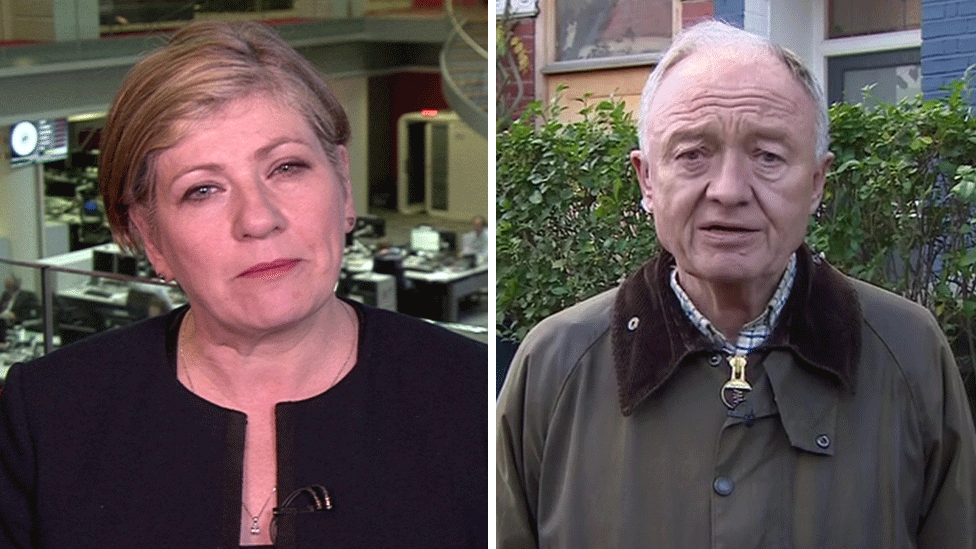Labour defence review 'could keep nuclear weapons option'
- Published
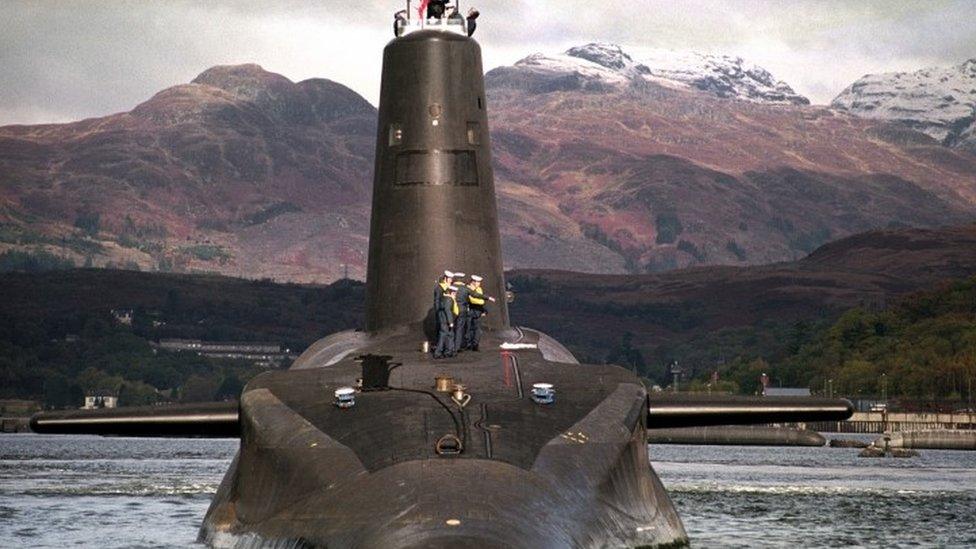
An internal review of Labour's defence policy will keep open the possibility of Britain retaining a nuclear weapons system, BBC's Newsnight understands.
The review is considering the party's stance on the renewal of Trident - Britain's nuclear deterrent - which leader Jeremy Corbyn wants to scrap.
It is expected to suggest five tests which nuclear weapons must satisfy.
Newsnight understands Mr Corbyn has accepted its draft conclusions - which could be formally debated in September.
A Labour spokesman said it would be for party members to decide the party's policy programme.
Parliament will hold a vote later this year on whether to proceed with building successor submarines to the existing Vanguard fleet, which is due to become obsolete by the end of the next decade.
Mr Corbyn, a longstanding campaigner for nuclear disarmament, is at odds with many of his MPs over the future of the weapons system.
Labour's official policy since the late 1980s has been to keep Trident.
However, supporters of Mr Corbyn want to change it at the party conference later this year, arguing the weapons will never be used and its multi-billion pound cost cannot be justified.
In January, the Labour leader commissioned a review - which is being led by shadow foreign secretary Emily Thornberry - to look at the party's defence policy, including Trident.
The review is likely to report in the summer.
Value for money
Newsnight understands it will include five key tests a future Labour government would have to evaluate before deciding whether to continue to support the use of nuclear weapons.
They ask whether it provides a "demonstrable contribution" to the defence of the UK and whether it represents value for money.
Labour would also have to consider the impact on jobs and regional development, whether it would contribute to the party's support for multilateral disarmament, and whether the deterrent would stand the test of time in the face of new technology.
Newsnight understands Mr Corbyn believes the report could provide a middle way between outright disarmament and maintaining a full-scale nuclear weapons system.
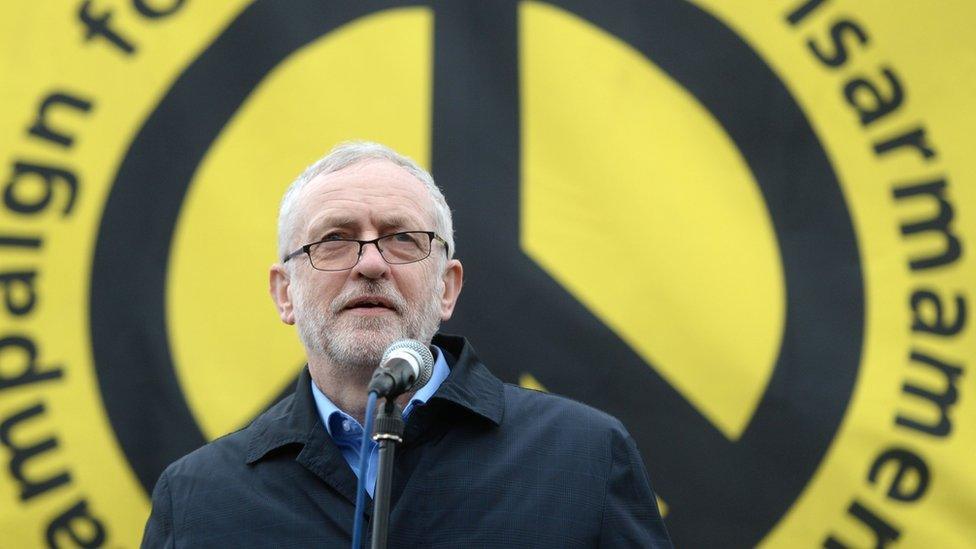
Labour leader Jeremy Corbyn is a long-standing opponent of Trident
However, Caroline Lucas, the Green Party MP for Brighton Pavilion, said supporters of Mr Corbyn's stance on nuclear weapons will be "disappointed by a defence review that seems to raise more questions than it answers".
"I think it certainly does mean that you cannot look at a Labour Party led by Jeremy Corbyn and be sure that it will be standing for unilateral nuclear disarmament - which is what he promised," she told the programme.
The Green Party has campaigned for the decommissioning of the UK's nuclear weapons.
Kate Hudson, general secretary of the Campaign for Nuclear Disarmament (CND), said she believed the five tests would inevitably lead to a decision to abandon the nuclear deterrent.
She said: "If people look objectively at the situation that Britain is in, its requirements for defence, the economic resources that it has available, my view is that people would be inclined to think that it was not good value for money."
'Best for Britain'
But she rejected any kind of compromise on the issue, saying it would simply leave the country with "less of something we don't need" rather than "nothing of what we don't need".
Labour's National Policy Forum could consider its policy on Trident prior to the party conference in September - at which party members could vote to overturn decades of support for nuclear weapons.
A Labour Party spokesman said: "The defence review is a continuing project looking at what is best for Britain. It will report in due course.
"As people would expect, we are assessing the impact of Brexit and the Chilcot Report as we consider the detail of our policy response. Ultimately it will be for the party members to decide Labour's policy programme."
- Published27 February 2016
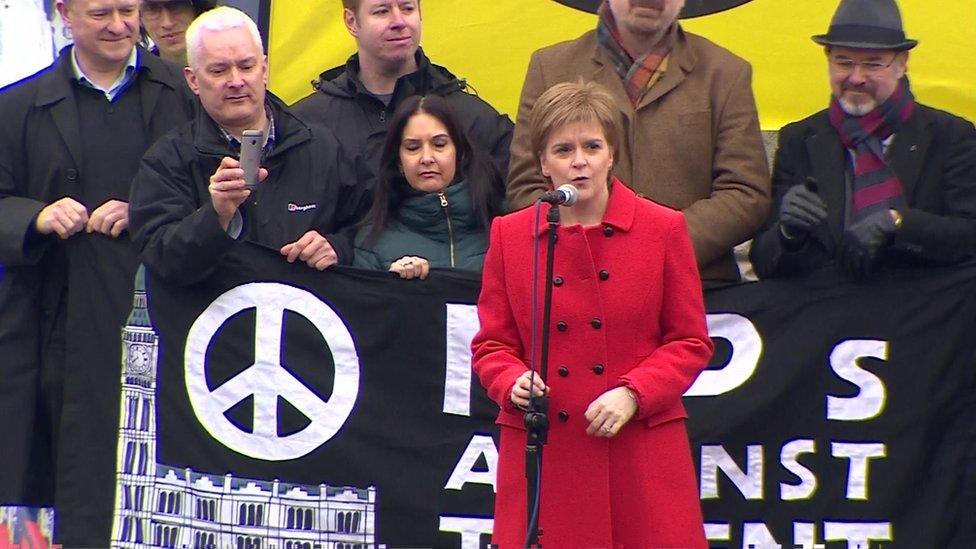
- Published29 February 2016
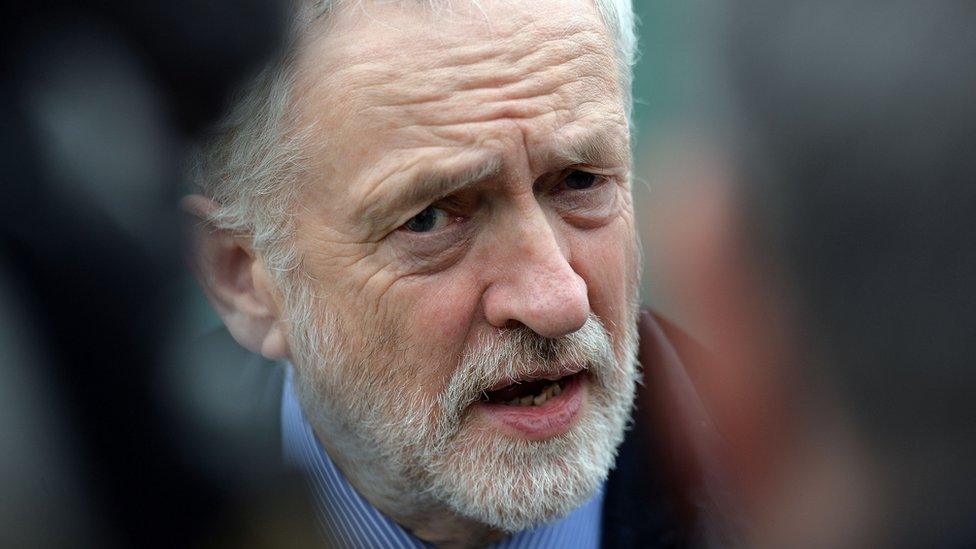
- Published9 February 2016
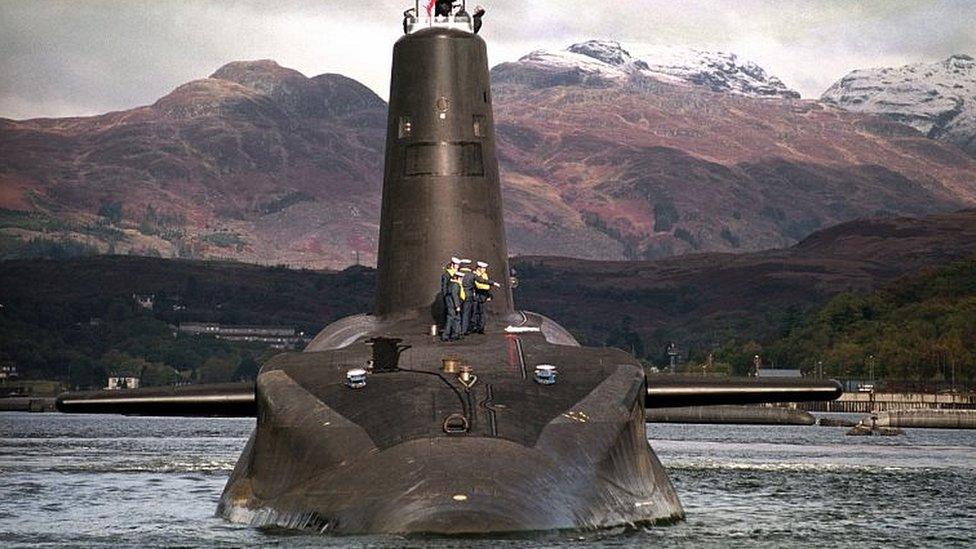
- Published15 January 2016
